This article was co-authored by Chloe Carmichael, PhD and by wikiHow staff writer, Amy Bobinger. Chloe Carmichael, PhD is a Licensed Clinical Psychologist who runs a private practice in New York City. With over a decade of psychological consulting experience, Dr. Chloe specializes in relationship issues, stress management, self esteem, and career coaching. She has also instructed undergraduate courses at Long Island University and has served as adjunct faculty at the City University of New York. Dr. Chloe completed her PhD in Clinical Psychology at Long Island University in Brooklyn, New York and her clinical training at Lenox Hill Hospital and Kings County Hospital. She is accredited by the American Psychological Association and is the author of “Nervous Energy: Harness the Power of Your Anxiety” and “Dr. Chloe's 10 Commandments of Dating.”
There are 16 references cited in this article, which can be found at the bottom of the page.
wikiHow marks an article as reader-approved once it receives enough positive feedback. This article received 14 testimonials and 91% of readers who voted found it helpful, earning it our reader-approved status.
This article has been viewed 404,882 times.
Do you ever find yourself weighing the pros and cons of a situation for so long that you forget to ever take action? Or maybe you play out a conversation in your head so many times that you feel like you've actually talked to the other person. If so, you might be an overthinker! While everybody gets caught up in their head once in a while, chronic overthinking can make it hard to actually deal with problems, so it's important to learn new strategies so you can get out of your head and back into the present moment.
Steps
References
- ↑ https://www.psychologytoday.com/us/blog/stronger-the-broken-places/201709/seeing-the-big-picture
- ↑ https://www.psychreg.org/how-to-overcome-overthinking/
- ↑ https://www.psychologytoday.com/us/blog/what-mentally-strong-people-dont-do/201602/6-tips-stop-overthinking
- ↑ https://www.mayoclinic.org/healthy-lifestyle/consumer-health/in-depth/mindfulness-exercises/art-20046356
- ↑ https://www.psychologytoday.com/us/blog/what-mentally-strong-people-dont-do/201602/6-tips-stop-overthinking
- ↑ https://www.urmc.rochester.edu/encyclopedia/content.aspx?contentid=4552&contenttypeid=1
- ↑ Chloe Carmichael, PhD. Licensed Clinical Psychologist. Expert Interview. 14 July 2020.
- ↑ https://www.psychologytoday.com/us/blog/living-forward/201603/4-ways-stop-beating-yourself-once-and-all
- ↑ https://www.helpguide.org/articles/anxiety/how-to-stop-worrying.htm
- ↑ https://www.helpguide.org/articles/anxiety/how-to-stop-worrying.htm
- ↑ https://www.psychologytoday.com/us/blog/what-doesnt-kill-us/201611/how-see-challenges-opportunities
- ↑ https://www.ncbi.nlm.nih.gov/pmc/articles/PMC2832862/
- ↑ https://www.psychreg.org/how-to-overcome-overthinking/
- ↑ https://www.mayoclinic.org/healthy-lifestyle/stress-management/in-depth/positive-thinking/art-20043950
- ↑ https://www.health.com/condition/anxiety/how-to-stop-ruminating-over-decisions
- ↑ https://www.psychologytoday.com/us/blog/the-introverts-corner/201411/5-ways-stop-overthinking-and-get-things-done
- ↑ https://www.psychologytoday.com/us/blog/focus-forgiveness/201505/6-signs-fear-is-holding-you-back
- ↑ https://www.additudemag.com/how-to-stop-overthinking-adhd-brain/
About This Article
To avoid overthinking, try to challenge negative or recurring thoughts you're having that stop you from doing things. For example, you could say to yourself, "These are just thoughts, and they are not truth." Additionally, if you're dwelling on a past event, try to focus on what you should do differently next time, rather than what you should have done before. If you find this difficult, ask others involved in the situation for their opinion, since another person's perspective may help you move forward. For tips on how to deal with overthinking by writing about your thoughts, keep reading!




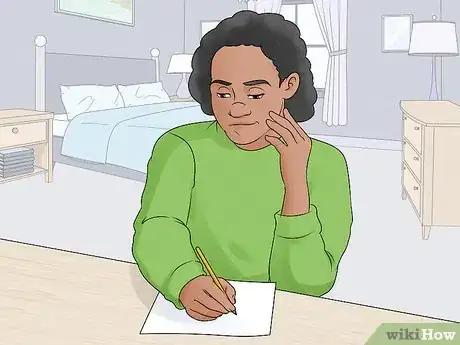




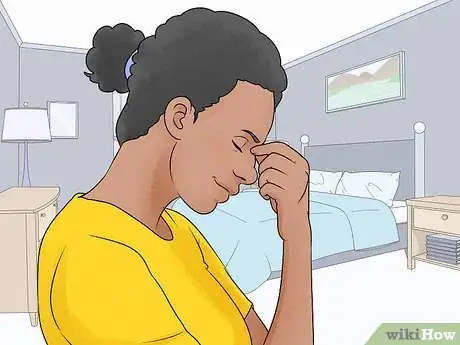





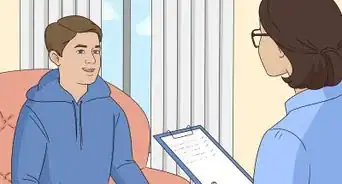
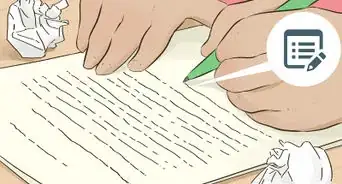

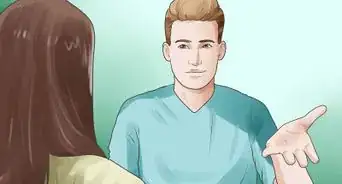
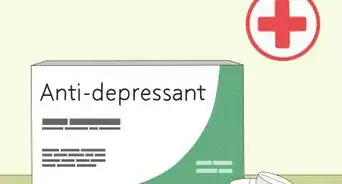


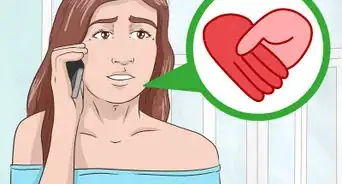

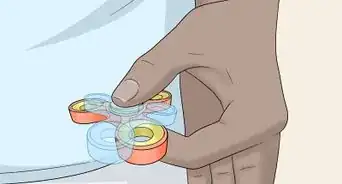

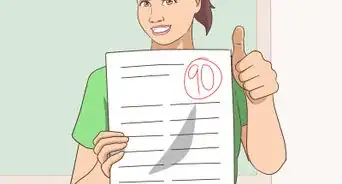


















































Medical Disclaimer
The content of this article is not intended to be a substitute for professional medical advice, examination, diagnosis, or treatment. You should always contact your doctor or other qualified healthcare professional before starting, changing, or stopping any kind of health treatment.
Read More...